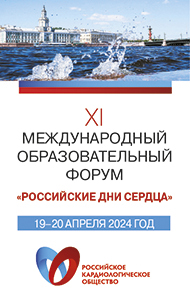Bradycardia does not increase risk for incident CVD, mortality
A heart rate of less than 50 bpm was not associated with greater risk for incident CVD or mortality, but patients with bradycardia assigned heart rate-modifying drugs may have a higher risk for mortality, researchers reported inJAMA Internal Medicine.
The retrospective analysis included 6,733 adults aged 45 to 84 years who participated in the MESA study. All patients were free of clinical CVD at baseline (2000-2002) and were followed for development of CVD or death. Patients were categorized by heart rate and assignment to heart rate-modifying medications.
The mean heart rate for the 5,831 patients not assigned a heart rate-modifying drug was 63 bpm; 5.3% had a heart rate lower than 50 bpm; and 30.3% a heart rate of 50 bpm to 59 bpm. The mean heart rate for the 902 patients assigned heart rate-modifying drugs was 60 bpm; 11.2% had a heart rate of less than 50 bpm; and 39.1% a heart rate of 50 bpm to 59 bpm.
The primary outcomes were CVD events and all-cause mortality. During more than 10 years of follow-up, 633 CVD events and 697 deaths (160 CVD-related) were reported. For patients not assigned heart rate-modifying medications, the mortality risk remained the same for those with a heart rate less than 50 bpm (HR = 0.71; 95% CI, 0.41-1.09), but increased among those with a heart rate greater than 80 bpm (HR = 1.49; 95% CI, 1.08-2.05).
Results also indicated an association between heart rate-modifying drugs and a higher mortality risk in participants with both a heart rate less than 50 bpm (HR = 2.42; 95% CI, 1.39-4.2) and a heart rate greater than 80 bpm (HR = 3.55; 95% CI, 1.65-7.65).
The researchers noted that they were unable to determine the reasons why participants were prescribed the heart rate-modifying drugs. “It is possible that these individuals may have been using these drugs for arrhythmias, [HF], or other CVD not reported to MESA,” they wrote. “Perhaps, more likely, persons taking these drugs may have had a previously higher BP and that adjusting for a single, baseline BP may not fully account for the increased risk associated with high BP.”
Despite these limitations to the study, however, Ajay Dharod, MD, instructor in internal medicine at Wake Forest Baptist Medical Center, said in a press release: “For a large majority of people with a heart rate in the 40s or 50s who have no symptoms, the prognosis is very good. Our results should be reassuring for those diagnosed with asymptomatic bradycardia.
“Bradycardia may be problematic in people who are taking medications that also slow their heart rate,” Dharod said. “Further research is needed to determine whether this association is casually linked to heart rate or to the use of these drugs.” – by Tracey Romero
Disclosure: One researcher reports being a principal investigator for research funding to Johns Hopkins University from Biosense Webster and a scientific adviser to Biosense Webster, CardioSolv and Medtronic.
Source: www.healio.com


.jpg)



